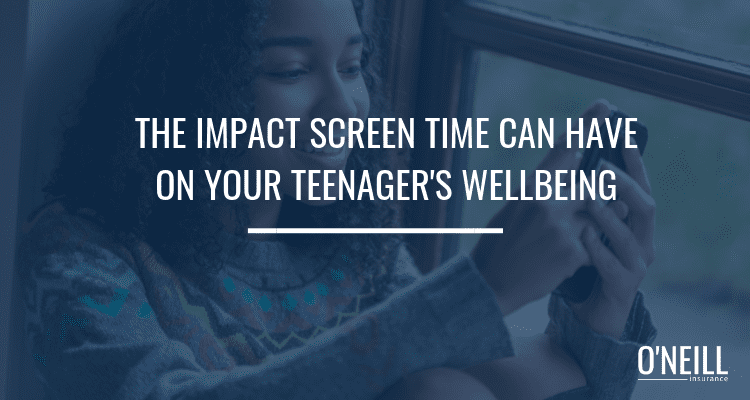
If you’re raising teens, you see first-hand the impact that screen time has on their overall wellbeing.
While you value the convenience a mobile phone offers your teen, you also have concern for their utilization of it.
When we were growing up, cell phones weren’t even heard of in our teenage years.
In fact, we were still turning the knobs on our television sets to move from one channel to the next.
The times have certainly changed, as research indicates that 95% of teens have access to a mobile phone and nearly 45% of teens report being online “almost constantly.”
With the sudden urge for teens to be connected nearly 24/7, we have to wonder what kind of impact it’s making on their mental and physical wellbeing.
Screen Time Linked to Depression
According to a recent study published in the Journal of the American Medical Association (JAMA), the amount of time teens spend using electronics (e.g., scrolling on social media or watching TV) may be linked to higher rates of depression.
The JAMA study involved over 3,800 students in 7th-11th grade from 2012 to 2018.
Over a six year period, the students completed surveys which revealed more information regarding how much time teens are spending on their phones or watching TV.
For example, to help determine the extent of their screen time, the survey asked students how much time per day they spent on social media or on the computer, watching TV or playing video games.
The survey also asked questions related to symptoms of depression.
To measure depression symptoms, the survey asked students to rate the extent to which they experienced known symptoms of depression – such as feelings of sadness or hopelessness – on a scale from zero (not at all) to four (very much).
Here’s what the study found.
- Social Media Usage: The study revealed that each one-hour increase in the average time spent on social media was associated with higher feelings of depression symptoms. The study’s researchers also found that high usage of social media over four years was associated with increased depression.
- TV and Computer Usage: For teens who already watched a lot of TV or used the computer frequently, there wasn’t an increase in depression symptoms over the course of four years. However, similar to the social media usage findings, the severity of depression symptoms increased for each one-hour increase in the average amount of time spent watching TV or using the computer.
- Video Game Usage: The study did not find any significant associations between video game usage and depression symptoms.
The study’s researchers point out that, while this study gives valuable insight into the general effects of screen time on a teen’s mental health, further research is needed to see if specific social media apps or genres of television are more problematic than others.
Help Manage Your Teen’s Screen Time:
Helping your children focus on their mental health is extremely important, especially during their teen years. However, banning screen time use altogether isn’t the answer.
Experts recommend setting consistent, daily screen-time limits for your teen.
For more information, talk to your teen’s doctor.
Components of this article were adapted from Zywave. This is not intended to be exhaustive nor should any discussion or opinions be construed as legal advice.

